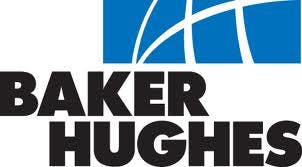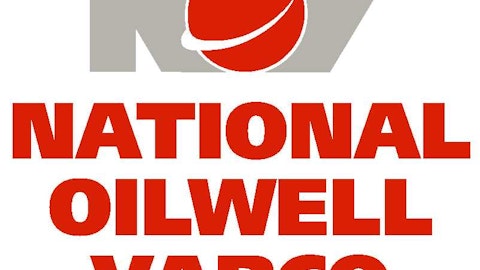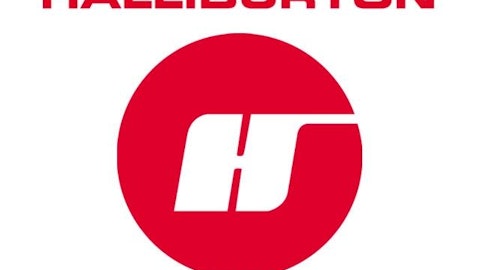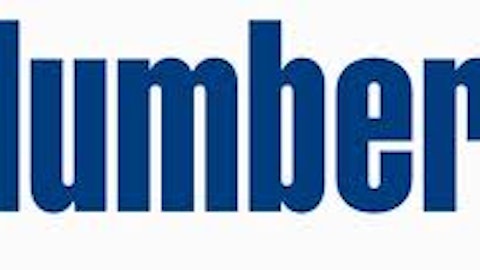The hydraulic fracturing industry in the U.S. is booming. Roughly 90% of all U.S. onshore wells now require some degree of hydraulic fracturing, in which water and minerals are injected into a well under pressure to boost its rate of oil or gas production. When three companies control 60% of an industry, as is the case in the hydraulic fracturing service provision, collusion and price manipulation becomes pretty common. The three companies being investigated for anti-competitive practices by the U.S. Justice Department are Baker Hughes Incorporated (NYSE:BHI), Schlumberger Limited. (NYSE:SLB) and Halliburton Company (NYSE:HAL). At the same time, the number of energy rigs in the U.S. rose by six to 1,782, the highest level this year – a result of increasing profitability of the rigging business. So is it worthwhile to invest in these companies?

Schlumberger Limited. (NYSE:SLB), being almost twice the size of Baker Hughes Incorporated (NYSE:BHI), should theoretically have less potential to grow. However, contrary to Baker Hughes’ weak quarter, Schlumberger reported a 49% increase to its net income in the latest quarterly report. Schlumberger is also initiating a $10 billion share buyback program as it forecast positive sentiment in the drilling industry for the remaining year. The company’s strength lies in having a global diversity of assets, as it makes two-thirds of its revenue outside North America.
Halliburton Company (NYSE:HAL) is still marred by the 2010 Gulf of Mexico oil spill. The latest reports are that the company will plead guilty in destroying evidence to cut a deal – a deal which will end up making them pay the maximum fine. Furthermore, Halliburton reported that its profits fell 7.9% in the latest quarter much like its U.S. based counterpart, Baker Hughes Incorporated (NYSE:BHI). But the company’s international revenue grew 14%, driven by growth in its Middle East/Asia business—the company’s fastest growing market.
Financial Comparison
| Indicator | Halliburton | Schlumberger | Baker Hughes |
|---|---|---|---|
| P/E TTM | 23.6 | 17.6 | 21.5 |
| Forward P/E | 11.3 | 14.2 | 11.9 |
| PEG Ratio | 0.9 | 0.7 | 0.9 |
| Operating Margin % TTM | 9.8% | 18.8% | 8.5% |
| Dividend Yield , % | 0.93% | 1.42% | 1.24% |
| Return on Equity | 12.7% | 17.6% | 5.9% |
| Current Price | $46.16 | $82.87 | $48.40 |
Data from Morningstar and Financial Visualizations on August 6th, 2013
The industry has an average P/E value of 20.9, which makes Halliburton Company (NYSE:HAL) and Baker Hughes Incorporated (NYSE:BHI) overvalued. Schlumberger Limited. (NYSE:SLB) is the world’s leading supplier of oilfield services and also has strong growth prospects as suggested by the company’s strong PEG ratio. Furthermore, its operating margin is head and shoulder above its North American counterparts while the stock also offers the highest yield, subjectively. On the count of efficiency and returning value to the shareholders, Schlumberger outperforms the opposition yet again.
The quarterly average price for Brent oil, an international benchmark, has remained more than $100 a barrel since the start of 2011. Customers are spending more to get access to harder to reach oil and gas reserves around the world, including deep-water fields, and the company said it expects those increases to continue.
The oilfield market in the U.S. is very uncertain. One of the reasons why Schlumberger Limited. (NYSE:SLB) has managed to reel in positive results is because of its insulation to North American supply shocks. On the back of its strong exploration and drilling operations in China, Australia, Saudi Arabia and Iraq, Schlumberger’s free cash flow over the past decade has been of $21.9 billion – almost five times the combined amount for Halliburton Company (NYSE:HAL) and Baker Hughes Incorporated (NYSE:BHI)
Verdict
At a time when global demand for oil is increasing – albeit not at levels witnessed before the 2009 global meltdown, it is quite obvious that oilfield service providers stand to benefit. As more rigs come online, companies with global exposure can sustain localized supply shocks as is shown by Schlumberger Limited. (NYSE:SLB). Halliburton Company (NYSE:HAL) and Baker Hughes Incorporated (NYSE:BHI) are undoubtedly very capable companies, but they are not insulated from the North American volatility as Schlumberger is. The collusion allegations against the three companies are expected to be a long-drawn saga as courtroom battles always are. However, by the time investors get a decision on the matter, I believe Schlumberger will be in a far better position than its rivals.
Awais Malik has no position in any stocks mentioned. The Motley Fool recommends Halliburton.
The article Should You Consider Investing in This Courtroom-Bound Oilfield Trio? originally appeared on Fool.com.
Copyright © 1995 – 2013 The Motley Fool, LLC. All rights reserved. The Motley Fool has a disclosure policy.




